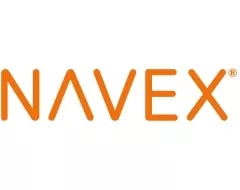As various new laws make it obligatory to have a professional whistleblowing infrastructure in place to report all sorts of wrongdoings, one important reason for implementing a whistleblowing system is "to be compliant". The increasing attention for compliance we are experiencing in Europe seems to absorb the field of "ethics". Is this trend noticeable in other parts of the world?
We asked Angélique Parisot-Potter, Group Senior Vice President & General Counsel at Massy Group of Companies, to share her insights about compliance and ethics with us.
1. People tend to speak about compliance when they have ethics in mind. Which perspective did you choose when working on the implementation of the whistleblowing channel as part of Massy's Speak Up culture?
I've always been an advocate of a values based culture. Compliance tends to focus more on following the rules but the reality is that you can't prescribe for every ethical dilemma a person may face. With this in mind and even though there are no laws requiring a whistleblowing channel certainly in Trinidad & Tobago, I felt that it was critical to demonstrate to our people that they could have a secure, confidential and anonymous means to raise issues concerns or questions about anything without retaliation or victimisation, without fear or favour. While it would always be preferable to have an organisational culture where people feel empowered to raise issues – and this is something we are actively pursuing – based on my experience you need to have a channel which allows people to raise issues without feeling compromised or fearful or because they simply don't feel that they know who to trust or speak with.
2. Do you see a relation between the recent increase in efforts to fight corruption in the Caribbean (such as the establishment of the Commonwealth Caribbean Association of Integrity Commission and Anti-Corruption) and the sense of responsibility of individual organisation?s to establish channels for employees to speak up about wrongdoings?
In the Caribbean it is going to take a very very long time to get to where we need to get. But every step counts. It takes one ripple to set a series of ripples in motion and that is what I'm trying to do at Massy. My hope is that other organisations in Trinidad & Tobago and in the Caribbean will see the benefits of having a forum or channel for open communication even if it is anonymous. Traditionally, those who spoke up were viewed as 'tattle tales' and it is a pejorative term. Slowly – even if it is only, unfortunately, after a negative incident or event – people are recognising that it is far better to hear from your own people about what is or may be going on than to hear about it in the newspapers or from an external, or regulatory or enforcement source when it's too late to resolve previously fixable issues.
3. In various countries, we see a change in organisational culture taking place: where speaking up used to be seen as a bad thing, it is now increasingly regarded as an act of loyalty towards the organisation. What challenges do you encounter when advocating Massy's Speak Up facilities?
These ideas are very new in this part of the world. Many people, for example, still have the mindset that 'this is how the system works' and that if you don't pay for a government minister- for example – to fly to an exotic location (more exotic than the Caribbean!) then you won't 'get the contract'. The mindset is this is how business is done and everyone is doing it and if we don't also do it we will lose our competitive edge. So people sometimes ask why it's wrong or, rather, unethical, to do something or conduct business in a manner that (1) isn't illegal; and (2) is similar to what everyone else is doing! And as I mentioned earlier, even if they did think they saw something wrong they would feel that by speaking up, they were snitching. We want to get to the point where issues will be raised even if the person is wrong or mistaken and the person speaking up is doing so out of that sense of loyalty to which you refer. Where the person knows she could be wrong or mistaken but will still raise the concern because it's the right thing to do and the issue can be addressed and resolved.
So the supporting Speak Up policy does not contain what I call 'legalese' – I have tried to make the language simple effective and readable. We have also done a powtoon which captures the broad issues someone can raise and how they can raise them and these aren't limited to fraud or the usual whistleblowing issues but issues that affect morale, that are seen to be unjust or unfair and of course unethical.
One of the next challenges is how do we measure the impact that this is having on the organisation.
The content of this article is intended to provide a general guide to the subject matter. Specialist advice should be sought about your specific circumstances.

